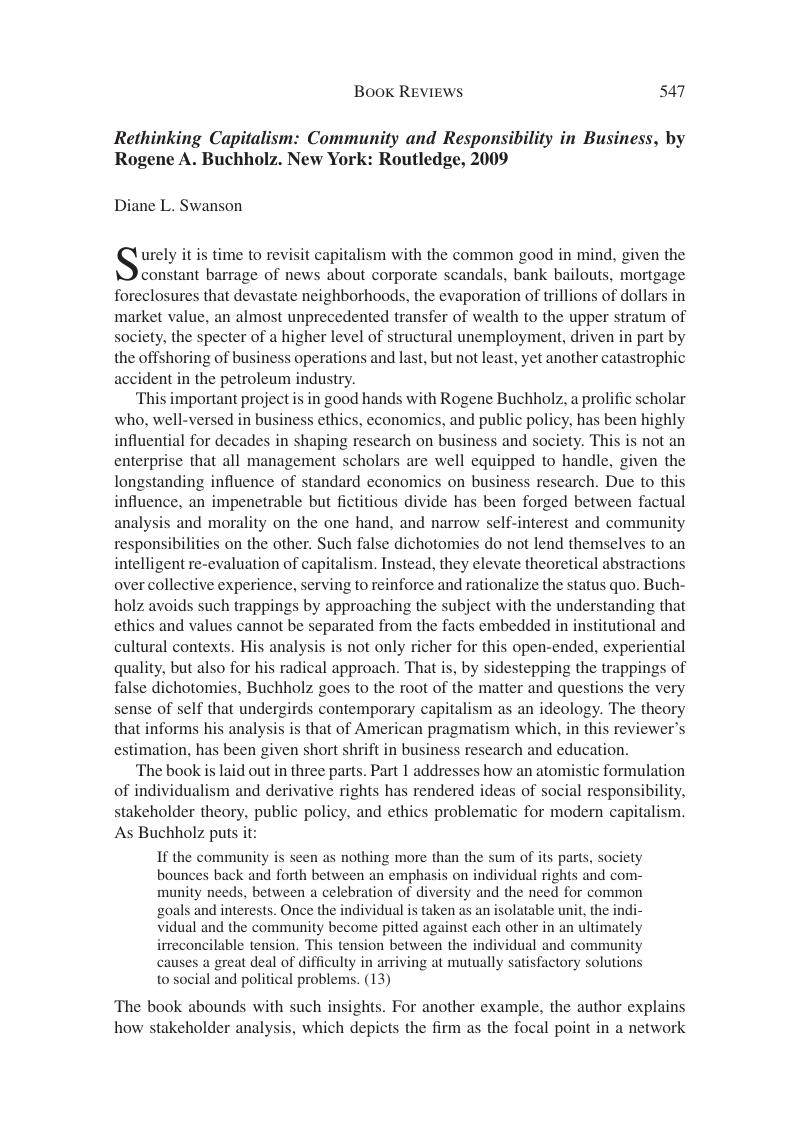No CrossRef data available.
Article contents
Rethinking Capitalism: Community and Responsibility in Business, by Rogene A. Buchholz. New York: Routledge, 2009
Published online by Cambridge University Press: 23 January 2015
Abstract
An abstract is not available for this content so a preview has been provided. Please use the Get access link above for information on how to access this content.

- Type
- Book Reviews
- Information
- Copyright
- Copyright © Society for Business Ethics 2011
References
REFERENCES
Evans, F. J., & Weiss, E. J.
2008. Views on the importance of ethics in business education: Survey results from AACSB deans, CEOs, and faculty. In Swanson, D. L. & Fisher, D. G. (Eds.), Advancing business ethics education:
43–66. Charlotte, NC: Information Age Publishing.Google Scholar
Frederick, W. C.
1992. Anchoring values in nature: Toward a theory of business values. Business Ethics Quarterly, 2: 283–303.10.2307/3857534Google Scholar
Frederick, W. C.
1995. Values, nature and culture in the American corporation. New York: Oxford Press.Google Scholar
Swanson, D. L.
1995. Addressing a theoretical problem by reorienting the corporate social performance model. Academy of Management Review, 20: 43–64.10.5465/amr.1995.9503271990Google Scholar
Swanson, D. L.
2004. The buck stops here: Why universities must reclaim business ethics education. Journal of Academic Ethics, 2: 43–61.10.1023/B:JAET.0000039007.06014.24Google Scholar
Willen, L.
2004. Kellogg denies guilt as B-schools evade alumni lapses. Bloomberg Press Wire (March 8). http://www.cba.k-state.edu/departments/ethics/docs/bloombergpress.htm.Google Scholar
Windsor, D.
2002. An open letter on business school responsibility (October 8). from http://info.cba.ksu.edu/swanson/call/Call.pdf.Google Scholar


